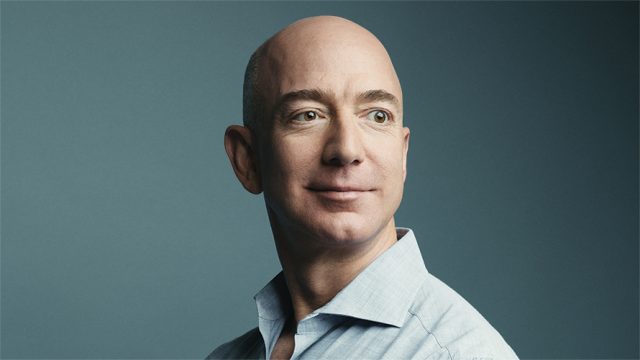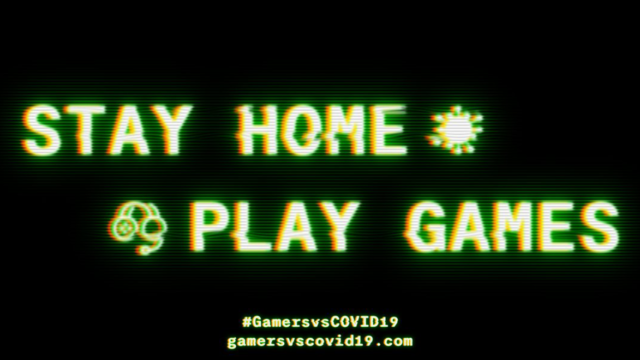| | | |  | | | | | | Digital | | | | March 23, 2020 | | By Josh Sternberg |
| |
| |  | | | Hey everyone, Josh, here. First, I hope you are feeling well. Last week was exhausting, wasn't it? We are learning to navigate this new world order, while doing our jobs and for many of us, taking care of our kids (or parents, or both!). It's hard. The positive is that we're all in this together. And by the looks of the rise of video conferencing platforms like Zoom and Uberconference, we're bringing an office mentality to working remotely to help us have some semblance of normalcy. Sure, it's not the same as hopping over to Sara's desk to snag a sucking candy from her jar, but we do get to do fancy backgrounds on Zoom. Last week, we spoke with a whole slew of media companies trying to flip their business models essentially overnight. Take events, for example. My colleague (and office candy slinger) Sara Jerde reported that media companies generate $22 million from event registrations, and make roughly $3 million per event. That's a huge chunk of a media business these days that's now put on hold until we are allowed to congregate again. A solution? Virtual events. Of course, revenue will take it on the chin from these events. You can't sell branded lanyards for virtual necks. Yet? Take sales, for another example. Adweek spoke with a few sales reps about what a press-the-flesh business looks like when they have to pivot to video conferencing. “Relationships are a huge driver of our business,” said Guy Griggs, the executive advertising director at the New York Times. “That will be completely limited based on not having experiences together. I don’t know what that new world order looks like, but it’s definitely one in which someone has to be really creative.” And through all of this, decisions are being made, as business has to keep going. And tough decisions. The amount of revenue lost from canceled events and pulled advertising (print and even linear) can't be made up by the huge gains in traffic publishers have been seeing this past week or two. Layoffs have started at the already decimated alt-weeklies and local newsrooms. Expect the coming weeks and months to be the same, a mixture of trying to understand what works and what doesn't, and trying to stay afloat. If you work for a media company—in any department—let me know how your team is figuring out this weird world we live in. Until next week. Be well, be safe, be smart. Josh Sternberg
Media and Tech Editor, Adweek
| | | | | |
| |
|  |
| | | | | IRL Conferences? Publishers Move to Virtual Events | |
 | | | “This may unlock new audiences and allow us to get our smart messaging out to a whole new audience pool,” said Kristin Burkhalter, vp of events at Axios. “Yes, it’s not ideal that we are completely turning on a dime and changing our live events where there’s a really important element to have that in-person engagement. We are primed right now with all the technology out there and with the fact that people are used to joining virtually.” | | |
| |
|  |
| | | How Coronavirus Has Impacted Foot Traffic Across Industries | |
 | | | Foursquare detailed foot traffic patterns at airports, bars, grocers, offices, restaurants and warehouse stores in four cities—Los Angeles, New York, San Francisco and Seattle—and found that visits to warehouse stores such as Costco and Sam’s Club went up nearly 39% between the week ending Feb. 19 and the week ending March 13, with the largest spike in the New York area (51%). Visits to Costco on the last Saturday and Sunday of February were up 26.6% and 16.4%, respectively, compared with the same days last year, according to Placer.ai, while the increases were not as prominent on the first weekend in March (12.9% on Saturday and 5.6% on Sunday). | | | | | |
| |
|  |
| | | Jeff Bezos Tells Employees—and the World—He’s Wholly Focused on COVID-19 | |
 | | | On Saturday, Amazon CEO Jeff Bezos posted a letter to employees, calling the coronavirus pandemic “a time of great stress and uncertainty,” but noting Amazon’s efforts to bring food and supplies to consumers with limited shopping options has never been more critical. In the post, Bezos said Amazon has responded with changes to logistics, transportation, supply chain, purchasing and third-party seller processes to “prioritize stocking and delivering essential items like household staples, sanitizers, baby formula and medical supplies.” | | | | | |
| |
|  |
| | | Facebook Will Prioritize Content Reviews to Focus on Potential to Harm Its Community | |
 | | | The social network said in a Newsroom post that it will continue to enforce its policies with a priority on preventing and disrupting harm across its platform. As the company has stated repeatedly this past week, its automated systems will be relied upon more in detecting and removing content and disabling accounts, and it cautioned that there will likely be more mistakes made and longer review periods. | | | | | |
| |
|  |
| | | Gamers Are Fighting Misinformation About Coronavirus Crisis | |
 | | | Bryce Blum, an esports lawyer, decided to start Gamers vs. COVID-19. The goal is to use a coordinated social media effort to educate the gaming public. Immediately, some of the most prominent voices in the gaming world, including streamers, esports organizations and pro players, all signed on to the pledge. | | | | | |
| |
|  |
| | | Can the Coronavirus Crisis Prompt a Correction in Brand Safety Tactics? | |
 | | | “Brands are obviously cautious about their messaging showing up next to content that could be perceived poorly by the consumer,” said Amanda Martin, vp of enterprise partnerships, at independent media agency Goodway Group. “Obviously, brands don’t want to be aligned with some of the unfortunate negative consequences of this pandemic, and so many try to avoid ‘coronavirus’ [as a keyword].” | | | | | |
| |
|  |
| | | | Featured Jobs | Imprint Projects Los Angeles, California | WCCB-TV Charlotte, North Carolina | Spectrum Networks New York, New York | Spectrum Networks Columbus, Ohio | JPA Health Communications Washington, Washington DC | | | |
| |
|  |
|
|
|